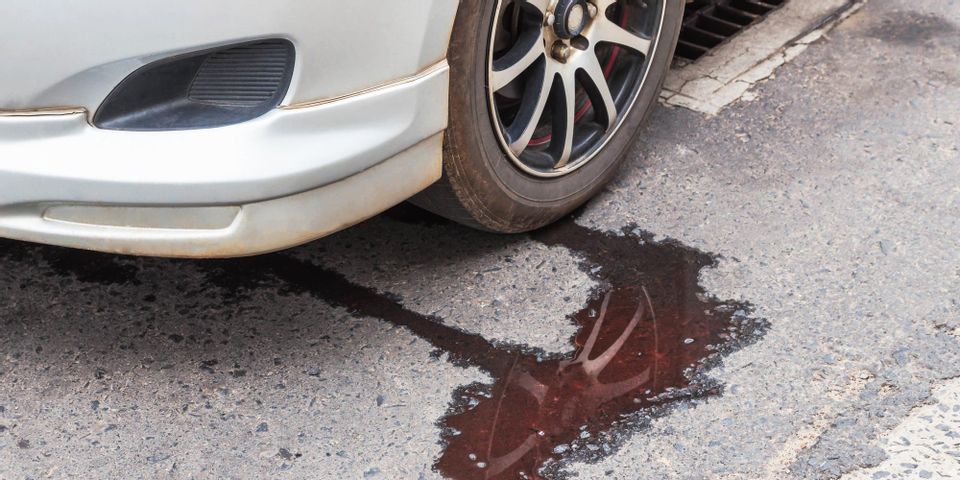Is It Okay to Drive With a Transmission Fluid Leak?

If you spot red liquid on the driveway beneath your car, your vehicle is likely suffering from a transmission fluid leak. While small leaks aren’t particularly dangerous at first, they can escalate quickly, and grow larger due to high pressure and heat. Unless the leak is severe, you may be able to drive, but the problem should be addressed as soon as possible by an auto maintenance specialist. To help you avoid the need for emergency transmission service, here are a few important details to know about this type of leak.
What You Should Know About Transmission Leaks
What Are the Risks?
Although a few drops of fluid may not present an immediate risk, losing a lot of the liquid could cause your vehicle to become inoperable. Essentially, this lack of lubrication can cause transmission parts to experience wear and tear that will cause the system to fail completely. While repairing these leaks can be costly, the damage caused by ignoring the issue can be even more expensive to fix.
Are There Other Signs That the Fluid is Low?
 The best way to tell if your transmission fluid is low is by checking the appropriate dipstick under the hood. However, if your car features a sealed system, you may require assistance from a mechanic to determine the current levels. Other common signs include an unusually tart odor coming from your vehicle or problems shifting into gear.
The best way to tell if your transmission fluid is low is by checking the appropriate dipstick under the hood. However, if your car features a sealed system, you may require assistance from a mechanic to determine the current levels. Other common signs include an unusually tart odor coming from your vehicle or problems shifting into gear.
What Causes Leaks?
Fluid leaks can occur due to damage affecting the input shaft, output shaft, and axle seals. Leaks may also be due to cracked hoses or fluid lines. Locating these problematic parts often requires disassembly and reassembly of the transmission—a labor-intensive process that is best performed by a certified auto maintenance professional.
How Can You Prevent Transmission Fluid Leaks?
Since these leaks are often due to standard wear and tear, it’s not always possible to prevent the problem from occurring. However, it’s still important to have an auto maintenance specialist provide regular transmission service—such as flushing out and replacing the fluid—at about every 30,000 to 60,000 miles, depending on your vehicle’s needs. This step will ensure the fluid is clean and less likely to cause damage to the transmission.
If your car is affected by this kind of leak, the specialists at Quality Transmission Service can help. Serving the Anchorage, AK, community, this auto shop is equipped to identify and resolve problems affecting both automatic and manual transmissions—including leaks. Whatever the issue, you can count on these ASE® Certified mechanics to provide swift service to get you back on the road with confidence—all for a competitive rate. They also offer routine auto maintenance services to help keep your transmission in good shape. Visit this auto shop online to learn more about these capabilities or call (907) 561-8767 to request a free estimate and schedule a same-day appointment.
About the Business
(106 reviews)
Have a question? Ask the experts!
Send your question

